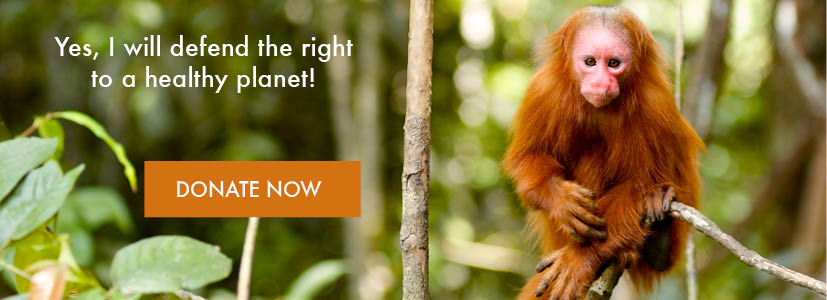|
Dear friend,
There’s so much in the news these days that sometimes it can be hard to make out the bigger picture from the individual pixels. 2018 brought a wave of climate lawsuits, as communities from New York City to the Philippines, France to Colombia, acted to hold fossil fuel companies accountable for their climate impacts. In fact, last year was dubbed “the year when the climate liability trend became a wave.”
And 2019 shows no signs of letting up. Already, the US Supreme Court has dealt a decisive blow to Exxon as the company contorts itself to avoid investigations into whether it misled the public about climate change. And recent signals suggest that the twin trends of climate liability and fossil fuel divestment are both going to make history in the year ahead.
Below are more developments we’ve been a part of here at CIEL:
US Supreme Court paves the way for Massachusetts consumer protection probe into ExxonMobil
Maura Healey, the Attorney General of Massachusetts, has been investigating whether ExxonMobil misled consumers and investors about its knowledge of fossil fuels’ role in causing climate change. And Exxon has fought back at every turn.
But last week, the US Supreme Court declined to hear Exxon’s appeal to stop the probe, clearing the way for Healey to obtain records from the company. It’s the latest setback for Exxon in its efforts to halt inquiries into its concealment of climate knowledge, and it could have implications far beyond Massachusetts. Read our full statement here and check out this piece in ThinkProgress quoting CIEL’s Carroll Muffett on what this decision could mean for future cases across the United States.
Climate Outlook for 2019: Legal and financial trends to watch out for
Did you know that climate change will cost the US economy $1 trillion by 2100 without drastic action? As more and more evidence piles up on the severity of climate impacts and the need for urgent action to transform our world to a low-carbon economy, 2019 is set to forge new frontiers in climate liability and fossil fuel divestment. Read more.
Peruvian Government guts agency working to end illegal logging
In the final weeks of 2018, the Peruvian Government dealt a massive blow to efforts to protect the Peruvian Amazon when it gutted the agency in charge of catching illegal deforestation in Peru. The agency had been recognized as a beacon of transparency and accountability in the otherwise corrupt logging sector — one that is being replicated by other governments around the world.
Yet, the Peruvian government has opted to undermine it. The move — which violates Peruvian law, as well as Peru’s commitments under trade agreements — is now facing pushback from the United States, a major trade partner with Peru. It could mark the first time the United States uses a trade deal to discourage environmental violations. Read more in a press release from CIEL, an AP article featuring CIEL fellow and former OSINFOR director Rolando Navarro, and an announcement from the US Trade Representative issued despite the government shutdown.
Climate talks in Poland fail to deliver on the promises of the Paris Agreement
Countries arrived at the global climate talks in Poland this December with a clear mandate: raise the ambition on countries’ climate action commitments and agree to a rulebook for how to do it. While the media largely lauded progress made in Poland, they didn't capture the bigger picture: Countries failed to deliver on the promises they made in the Paris Agreement. In the final hours of negotiations, the last reference to human rights was removed from the rulebook, and they did far too little to increase their climate actions to keep global temperature rise below 1.5°C. Read more in CIEL’s press release on the final outcomes in Poland, articles featuring CIEL’s Sébastien Duyck in Pacific Standard, Reuters, and UnEarthed, and a joint op-ed in Thomson Reuters on the importance of protecting human rights in climate action.
TeenVogue reaches new audiences on the plastic pollution crisis
An exciting new series by TeenVogue is exploring the environmental and human costs of the global plastic crisis and considering possible solutions to the problem. With over 14 articles so far, the magazine is helping to bring this key environmental issue to a younger generation and encourage youth to get involved and demand action. Check out this article on how the fossil fuel industry is worsening the plastic crisis featuring CIEL’s Carroll Muffett and Steven Feit, and explore the entire series here.

|